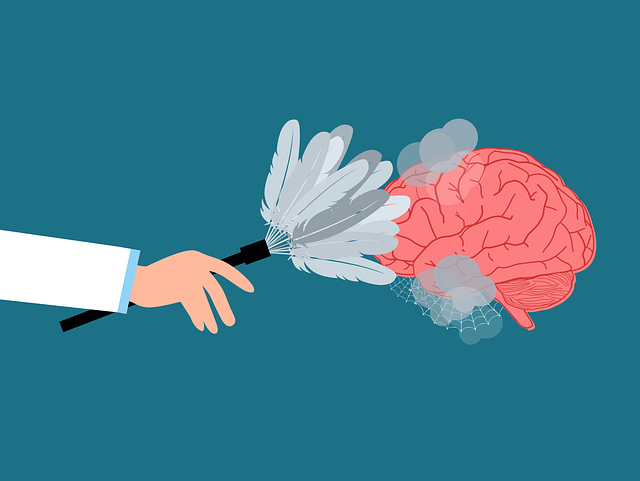Longmont Bilingual Therapy offers a unique approach to emotion regulation for bilingual individuals, addressing cultural and linguistic variations in emotional expression. Through interactive sessions incorporating native languages and culturally relevant strategies, they foster understanding and self-awareness. This method not only improves mental health outcomes but also promotes cultural sensitivity, empowering people to manage emotions effectively and leading to more balanced lives.
Emotion regulation is a vital skill, especially for bilingual individuals navigating a complex emotional landscape. This article explores effective strategies to help them manage their emotions in a diverse linguistic environment. We delve into the unique challenges faced by bilinguals and present Longmont Bilingual Therapy as a pioneering approach. Through this therapy, individuals learn powerful techniques to enhance emotional intelligence and overall well-being. By combining theoretical understanding with practical strategies, we aim to empower readers with tools for successful daily implementation.
- Understanding Emotion Regulation for Bilingual Individuals
- Longmont Bilingual Therapy: An Approach to Teaching Effective Techniques
- Practical Strategies for Daily Implementation and Success
Understanding Emotion Regulation for Bilingual Individuals

For bilingual individuals, emotion regulation techniques can be a powerful tool for navigating the complexities of managing feelings in multiple languages. Understanding cultural nuances and linguistic variations is essential when teaching these skills. Longmont Bilingual Therapy recognizes that emotions are expressed and understood differently across various language communities, requiring tailored approaches to effective mood management.
Resilience building, a key aspect of emotion regulation, can be enhanced through the exploration of different linguistic frameworks. By examining how mental health policy analysis and advocacy intersect with bilingualism, therapists can develop inclusive strategies that address the unique challenges faced by this demographic. Such an approach not only supports better mental health outcomes but also fosters cultural sensitivity in therapy.
Longmont Bilingual Therapy: An Approach to Teaching Effective Techniques

Longmont Bilingual Therapy offers a unique approach to teaching emotion regulation techniques, catering to a diverse range of students. This innovative method recognizes the power of language and cultural context in managing emotions, making it particularly effective for bilingual individuals. By incorporating both native languages and culturally relevant strategies, therapists create a supportive environment that fosters understanding and self-awareness. The therapy sessions are designed to be interactive and engaging, encouraging active participation from learners.
This approach not only focuses on teaching practical emotion regulation skills but also aims to improve overall mental health. In today’s fast-paced world, where stress and anxiety are prevalent, Longmont Bilingual Therapy provides a valuable tool for navigating life’s challenges. Their methods have been proven effective in various settings, from clinical practices to educational institutions, helping individuals of all ages to develop resilience and enhance their mental wellness. Additionally, by advocating for Mental Health Policy Analysis and potentially incorporating insights from the Mental Wellness Podcast Series Production, this therapy ensures that culturally sensitive practices are integrated into broader mental health initiatives, ultimately contributing to better Anxiety Relief strategies for diverse communities.
Practical Strategies for Daily Implementation and Success

At Longmont Bilingual Therapy, we recognize that emotion regulation is a vital skill to cultivate, especially in our fast-paced and demanding world. Teaching individuals practical strategies for daily implementation can significantly impact their overall well-being and success. One effective approach is to encourage mindful practices, such as deep breathing exercises or meditation, which help individuals become more aware of their emotions and respond rather than react impulsively. These techniques promote self-regulation, enabling people to navigate challenging situations with composure.
Additionally, our therapists emphasize the importance of self-reflection and journaling to enhance emotional intelligence. By regularly documenting feelings and experiences, individuals can identify patterns and triggers associated with certain emotions. This process fosters self-awareness and builds confidence in managing their emotional responses. Moreover, integrating confidence-boosting activities into daily routines can significantly contribute to burnout prevention strategies for healthcare providers, who often face high-stress environments. Self-esteem improvement techniques, combined with these practical tools, empower individuals to lead more balanced and fulfilling lives.
Emotion regulation is a vital skill, especially for bilingual individuals navigating a complex emotional landscape. The article has explored this topic, highlighting the importance of understanding cultural nuances and offering practical strategies. Longmont Bilingual Therapy provides an innovative approach, focusing on teaching effective techniques tailored to bilingual needs. By incorporating these methods into daily life, individuals can enhance their emotional well-being and build resilience, ensuring a more balanced and fulfilling life.














